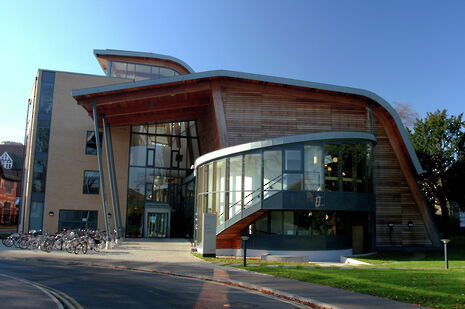Male teachers perceived as paedophiles
Male primary teachers unfairly associated with paedophilia

A fellow at the Faculty of Education has claimed that male primary school teachers suffer from pervasive stereotypes of homosexuality and paedophilia.
Simon Brownhill is a qualified teacher and spent several years in the primary education sector before becoming a Senior Teaching Associate at the Faculty of Education.
Speaking at this year’s Festival of Ideas, he told the Cambridge News that “there is a worry that if you are a man who works in the early years you may be perceived as homosexual, your sexuality is challenged, or that you are a paedophile and that people think ‘what’s wrong with you, why do you want to work with children?’”
Dr Brownhill’s claims are supported by research at Nottingham Trent and Bedfordshire Universities from 2013 indicating gender stereotypes as well as pervasive suspicion of paedophilia among male primary school teachers.
From both interviews he has performed and from drawing on personal experience, Dr Brownhill also said that the apparent novelty of male primary school teachers (with just one in five being male) can lead to the expectation that they will function as a father figure for male children.
At the age of 22, as a newly qualified teacher, he says he was in no way willing or able to perform a parental role, and this reflects the wider preoccupation with the benefits of boys having a ‘male’ role model.
In a series of articles, including ‘Build me a Role Model’, Brownhill has discussed the ambiguity of this concept, suggesting that concentrating upon universally applicable characteristics of a positive role model and good practice could be more beneficial than the perpetuation of gender stereotypes - through a focus on specifically ‘male’ role models in primary education.
Furthermore, he says, prioritising male teachers over their female counterparts runs the risk of disadvantaging girls.
Brownhill explains that the issue of emphasising male role models is often simply used to make excuses for wider education failings.
In education, the gender gap is “real and persistent”, and the continued failure of successive governments and education staff to combat this issue illustrates that we are “holding onto the idea that more men will deal with anti-learning issues.”
Ultimately, Brownhill says that there is “no research that says men are better at teaching than women” and in reality, “it’s not about gender, it’s about whether they’re a good teacher”.
The School Workforce Census, undertaken annually by the Department for Education, indicates that as of November 2013 8.7 per cent of teaching staff in state-funded primary schools were men. The equivalent figure in secondary schools was 29.3 per cent.
In a 2013 report, the Daily Telegraph found that just 21% of graduate students accepted onto training courses for primary education were men, despite the fact that the overall proportion of men working in the early years sector has increased by a fifth over the past five years.
Recently Alex Lundie, the head of Broadmead Primary Academy in Croydon, has called for more male primary school teachers as the school hired its only male teacher in September.
Lundie stated the following in the London Evening Standard: “There don’t seem to be very many men who want to go into nursery, reception and Key Stage 1 teaching. It would be great if it would change. I don’t think teaching should be a female preserve.”
 News / Copycat don caught again19 April 2024
News / Copycat don caught again19 April 2024 Interviews / ‘People just walk away’: the sense of exclusion felt by foundation year students19 April 2024
Interviews / ‘People just walk away’: the sense of exclusion felt by foundation year students19 April 2024 News / AMES Faculty accused of ‘toxicity’ as dropout and transfer rates remain high 19 April 2024
News / AMES Faculty accused of ‘toxicity’ as dropout and transfer rates remain high 19 April 2024 Theatre / The closest Cambridge comes to a Drama degree 19 April 2024
Theatre / The closest Cambridge comes to a Drama degree 19 April 2024 News / Acting vice-chancellor paid £234,000 for nine month stint19 April 2024
News / Acting vice-chancellor paid £234,000 for nine month stint19 April 2024




